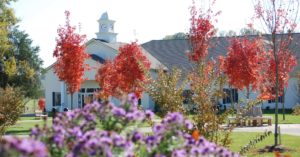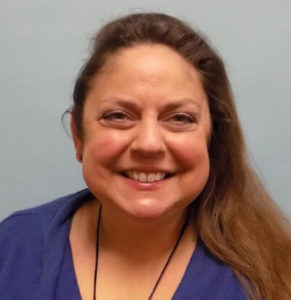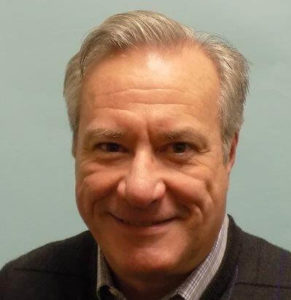
Cumberland Heights’ programming is based on the principles of the 12 Steps of recovery. Each month we ask a member of our expert staff to share his or her experience on a specific Step. This month Spiritual Directors Angela Moscheo Benson, M. Div. MA and Stan Bumgarner M. Div. LADAC will focus on Step Two: Came to believe a power greater than ourselves can restore us to sanity.

Angela Moscheo Benson, M. Div. MA
My first sponsor asked me to define each word in each Step we were working. Working through the definitions for Step Two brought my attention to the word sanity: the ability to think and behave in a normal and rational manner. I remember reading that definition only to laugh out loud at how far from sane my ability to think was in that moment. It’s almost impossible to think back on the roar of distortion in my head the first time I worked Steps One through Three. I lump them together because I recommit to them every day, and right in the middle is the all-important recognition of the need for help.
Step Two is all about asking for help. Sure, it’s also about understanding how our own best thinking got us here, but logically we need something outside of ourselves if we want to change.
There is an awareness which occurs in an honest working of Step One that leads me to a place of acceptance in Step Two. It’s as if the shift of perception leads to a shift in attitude, but that isn’t necessarily true. Unless we are willing to believe in something greater, the shift in awareness isn’t enough. At its core, Step Two asks us to move from the powerlessness we felt in Step One to a place of hope that change is possible. Like it says in the Twelve Steps and Twelve Traditions, “We perceive that only through utter defeat are we able to take our first steps toward liberation.” Most often liberation comes with the strength we receive from a Higher Power, but only if we’re open to the possibility of a restorative Power and are willing to ask that Power for help. For some, that Power is found in the other people in the rooms, but for me, that Power is a caring God who wants to help me recover my true spiritual nature. I may be powerless, but I’m not without help.

Stan Bumgarner M. Div. LADAC
Step Two is the natural progression of having worked Step One. In Step One we admit no matter how hard we try to stop, moderate, or control our drinking or drug use, we can’t do it. And as a result, our lives are not turning out the way we want.
The reasonable conclusion from working Step One is, “If I can’t figure this out on my own, then I need help, and it’s going to have come from something much wiser than I am and much bigger and stronger than alcohol and drugs.”
Working Step Two does not necessarily mean we must embrace the capital “G” God as the power greater than ourselves. Although many people are comfortable with this concept of Higher Power, there are also those who aren’t. And that’s completely acceptable.
For recovery newcomers, it may be more effective to have a tangible power greater than themselves in the form of the 12-Step recovery process, the 12-Step Recovery community, and a caring, present sponsor.
The essence of Step Two is recognizing and coming to believe two key concepts: 1. I can’t seem to figure it out because my addiction is bigger than I am; and 2. For me to survive and turn my life around I need help, and the help I get is going to have to be more powerful than my addiction.
Step Two is critically important because it sets the stage for all the other steps. Until we finally come to believe we need help, we won’t ask for it. Until we ask for help, we won’t experience the sense of hope and promise offered by working the remaining Steps.










